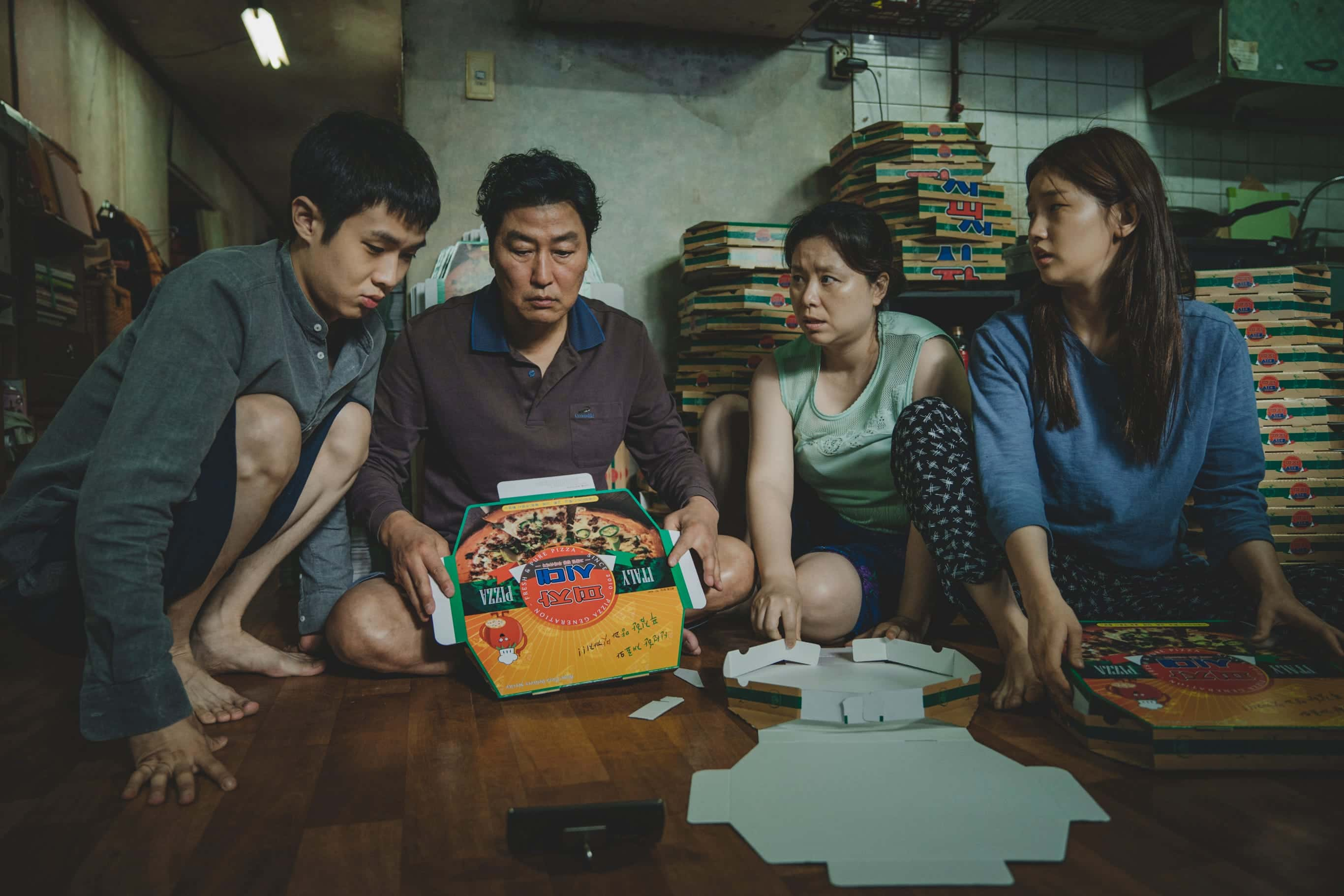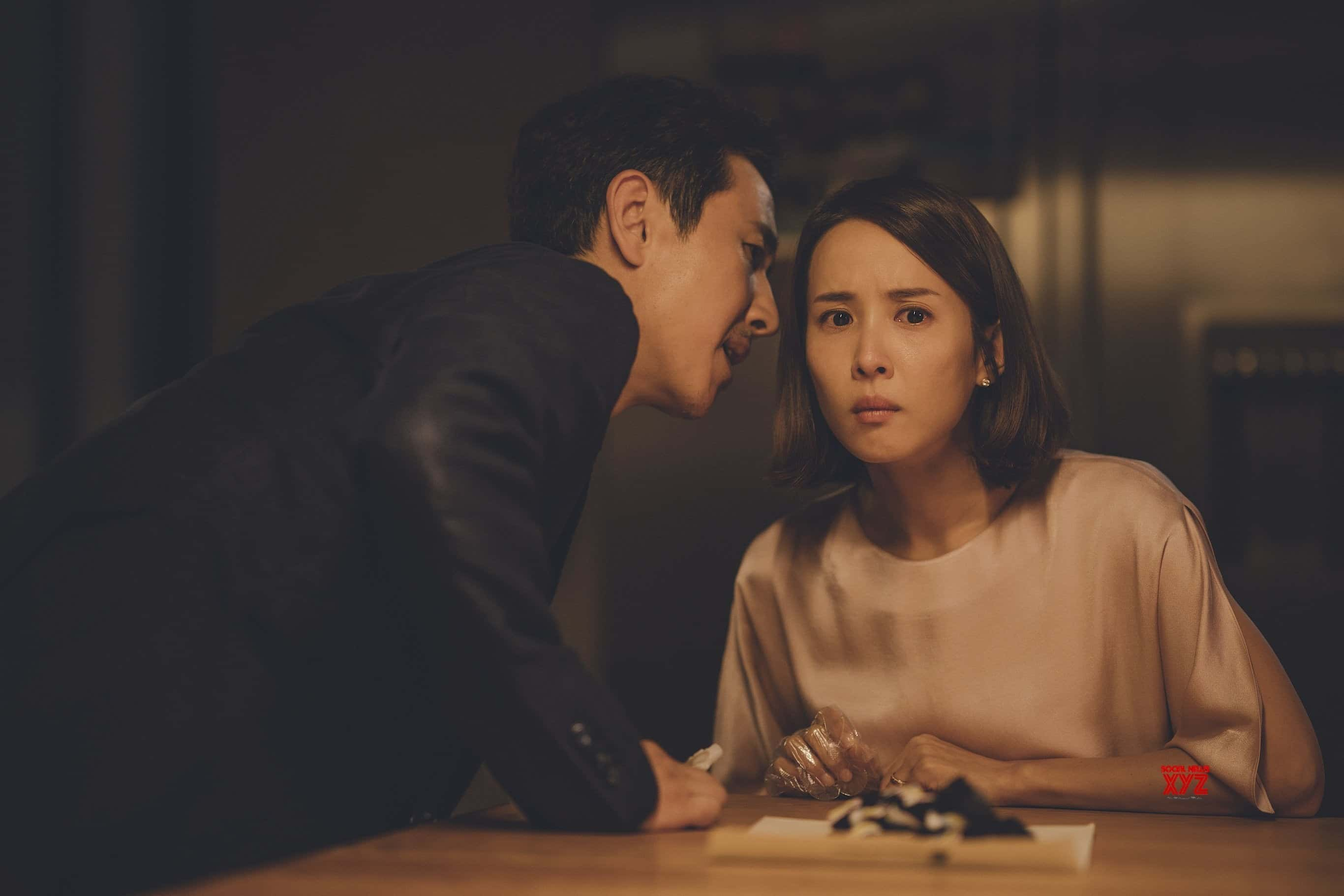The Hidden Angle | 'Parasite' harmonizes music and acting playing off each other to portray class conflicts

Directing, Film Editing, International Feature Film, Best Picture, Production Design, Writing (Original Screenplay); these are the categories in which Bong Joon-ho's film 'Parasite' received nominations for the 92nd Academy Award.
This article will not argue for or against this film's nominations in any of these categories. The intention is to bring to your attention the hidden details. The film did not receive any nominations for performance or sound design/background score.
I think it deserves to be spotlighted as much as the others. The sync between music and performance especially. The film sees Song Kang-ho as Kim Ki-taek. He is the father in a family of four that lives in a "semi-basement" because his business plans have failed one after another.
They have to scrimp on everything and that includes paying for the internet. The entire family uses their neighbor's internet and the film's first scene sees the son -- Kim Ki-woo -- played by Choi Woo-shik search desperately for a signal. He calls out to his sister and tells her that the lady above has changed the wifi password. He is unable to connect to it anymore.

Finally, he finds an open source at one corner of his house, the corner where they have placed the toilet and the entire family has to use that spot to access the internet. The influence of performance and music is visible beginning from this opening scene.
The music, most of them western classical instrumentals, is composed by Jung Jaeil and the score played during the opening scene is titled 'Opening'. The film centers on this family which scams its way into the lives of an upper-class family through the one rich friend that Ki-woo has.
He is referred by this friend to tutor the daughter in this rich family and after he gets the job, he manipulates the parents Park Dong-ik and Park Yeon-gyo into believing that their son needs an art instructor who is eccentric.
He introduces his sister Kim Ki-jeong as Jessica, an artist/art therapist from Illinois and the lady of the house falls hook, line and sinker. This way, the entire family finds themselves employed in the Park residence and they are living a fantasy.

From earning money that can help them move out of the "semi-basement" into something better to being given a chance at employment when getting jobs has become so tough, luck seems to be on their side. Until it isn't.
The film starts as a dark comedy that is a commentary of the class system and then turns into a tragedy and this transition is beautifully orchestrated by the cast along with the music. The music in itself travels with the story with each song narrating a mood.
If the opening is more a tone of wonder, then 'Ending', which plays as the climax, plays out comparatively somber. The accompanying performance, especially the climax where we do not see the Kim family break out of the class system as they wished, but become victims of it, pulls you into their lives until you are heartbroken by how fast things spiraled out.
After all, one moment the Kim family was enjoying the luxuries that life had to offer, even if not their own and the next, they were reminded of the "semi-basement" that they live in. They are constantly trying to remove the stench that has permeated them because of living underground but are reminded of where that stench comes from every day in different ways.
It has them question their place in society and this constant disapproval is what pushes Ki-taek to take a drastic step in the end. The lady of the Park family during a conversation with Ki-jeong tells her that she would rather hire through reference because she feels secure.
She calls it the "The Belt of faith" and there is a stunning violin piece that plays out at this time which underlines the irony. Filmmaker Bong Joon-ho has also used the music to brilliantly set up visual metaphors in the film and "The Belt of Faith" is a stunning example of how much a background score could influence the scenes and thereby, the mood of a film.
Yeong-gyo, who is also a mother of two, is so dependent on references because she cannot easily trust people. It took the Kim family very little effort and a great plan to manipulating them into firing their trusted employees.
This insecurity is exactly what makes way for greed, and that turned out into the family's downfall as well. Similarly, the Kim family's downfall came from letting the former housekeeper Gook Moon-gwang (Lee Jung-eun) inside the Park residence.
The Kim family is not aware of what Moon-gwang is hiding in the basement and this moment in the film is the turning point for the Kim family that has so far successfully managed to con the Park family. Moon-gwang finds the truth about how the Kim family conned everyone into believing that they were not related to each other and records proof.
She uses this to blackmail them and has them kneel on the ground as punishment for trying to throw her out of the house when technically both Moong-gwang and the Kim family were on the same side. When she recalls how much she used to love the house and the moments that she had enjoyed with her husband in the beautiful house, the Italian song 'In ginocchio da te' begins playing.
This is a brilliant play on disparity because the song is a romantic track and the scene that is being portrayed is that of animosity. The desperation of each of the characters in the frame when this scene plays out? That is the first of the dominoes to fall, resulting in a chain reaction that can never be undone.
The film and the background score hit a crescendo here. Then we have the garden birthday party. The song 'Camping' that is used here plays with contrasts again where a hymn plays out in the background while violence ensues.
Such intricate detailing allows the music to play off of the performance and vice versa and as the film draws closer to the end, we see the decrescendo and there is a satisfaction of having watched something truly engaging.
‘The Hidden Angle’ is a weekly column examining narratives, frames and sounds that add value to movies and shows but are not part of conversations surrounding their success or failure. The column will be published Fridays and we start with the Oscar 2020 hopefuls.










